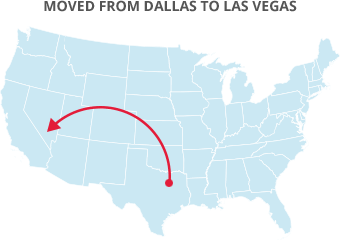

By Julie DeLong, A-1 Freeman Moving Group
 Moving soon? So are lots of others--last year over 3 million Americans moved to another state to a new residence. Many those moves were across the country and others may have been across the street, but all of those families had to pack all their stuff, put it onto a moving van, and hope that it arrived without issue. If you're planning a move, there is no doubt you have been online to research moving companies and have gone down the rabbit hole of horrible move anecdotes on various websites. How do you supervise your residential move so that you are not duped by moving scammers, and that your belongings arrive at your new home in Denver safe and intact?
Moving soon? So are lots of others--last year over 3 million Americans moved to another state to a new residence. Many those moves were across the country and others may have been across the street, but all of those families had to pack all their stuff, put it onto a moving van, and hope that it arrived without issue. If you're planning a move, there is no doubt you have been online to research moving companies and have gone down the rabbit hole of horrible move anecdotes on various websites. How do you supervise your residential move so that you are not duped by moving scammers, and that your belongings arrive at your new home in Denver safe and intact?The first thing to do is to learn the jargon of the trucking industry. It's a lot easier to make good decisions if you comprehend the language of the business and the different business models of moving companies. This glossary of terms, found on the Federal Motor Carrier Safety Administration website, can assist you to familiarize yourself with Mover-speak so that when you hear terms like storage-in-transit, tariff and released value, you’ll comprehend what they refer to.
The FMCSA website is a good beginning point in general, as it also spells out the rules, if you will, that licensed carriers abide by. Any transportation provider you are pondering needs to be registered with the US Department of Transportation, and possess a Motor Carrier and DOT number. You can look for any complaints against a company on that site. The ones on Yelp and Reddit are more amusing, but any issues filed with the DOT usually have a higher level of truth than complaints that are most likely the result of the consumer just not paying attention.
In a perfect world, you would find movers a few months prior to your move, and unhastily pack, manage the family, and be 100% prepared when the movers show up. Real life is not so simple, and that's what moving scammers count on when they are promising you the sun—you're scattered and focusing on a million things, so they appeal to your sense of urgency—here is a rough estimate and a handshake and we'll handle the details later. This is a definite way to never see your couch again, unless you want to buy it back from Craigslist.
Rather, ask your realtor for a suggestion of a moving company. Or, if you know anyone who's moved recently, ask them if they would recommend their mover. National moving companies normally have locations all over the country, so you can ask your Uncle in Iowa who they used, even if you live in Texas. Use the FMCSA website to look up moving companies registered for interstate moves, and Google them. Once you've reduced down the list to a couple choices, get written in-home estimates.
Be sure to review the FMCSA publication, "Your Rights and Responsibilities When You Move". When hiring a professional mover, it's a federal law that you're provided this 25-page pamphlet (or a link to it) that contains your rights, protection, and industry regulations.
It is important that you spot a dishonest mover BEFORE they load your possessions. Keep in mind, not every mover has your best interest in mind. So, keep these RED FLAGS closeby as you are talking with your potential mover.
Be wary of movers who:
It is better to be safe than sorry. So, be sure and verify your moving company before they load your stuff onto their moving truck! Remember that if it seems too good to be true it probably is, and since you are trusting the moving company with what's effectively your life, do your research and select a reputable moving company, like A-1 Freeman Moving Group, who will take good care of you when you move to Denver.

